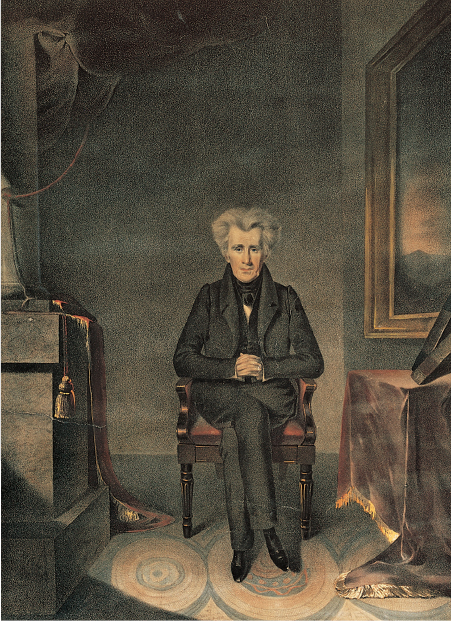Jackson’s Agenda: Rotation and Decentralization

To make policy, Jackson relied primarily on his so-called Kitchen Cabinet. Its most influential members were two Kentuckians, Francis Preston Blair, who edited the Washington Globe, and Amos Kendall, who wrote Jackson’s speeches; Roger B. Taney of Maryland, who became attorney general, treasury secretary, and then chief justice of the Supreme Court; and Martin Van Buren, whom Jackson named secretary of state.
Following Van Buren’s example in New York, Jackson used patronage to create a disciplined national party. He rejected the idea of “property in office” (that a qualified official held a position permanently) and insisted on a rotation of officeholders when a new administration took power. Rotation would not lessen expertise, Jackson insisted, because public duties were “so plain and simple that men of intelligence may readily qualify themselves for their performance.” William L. Marcy, a New York Jacksonian, offered a more realistic explanation for rotation: government jobs were like the spoils of war, and “to the victor belong the spoils of the enemy.” Jackson used those spoils to reward his allies and win backing for his policies.
Jackson’s highest priority was to destroy the American System. He believed that Henry Clay’s system — and all government-sponsored plans for national economic development — were contrary to the Constitution, encouraged “consolidated government,” and, through higher tariffs, increased the burden of taxation. As Clay noted apprehensively, the new president wanted “to cry down old [expansive, Hamiltonian] constructions of the Constitution … to make all Jefferson’s opinions the articles of faith of the new Church.” Declaring that the “voice of the people” called for “economy in the expenditures of the Government,” Jackson rejected national subsidies for transportation projects. Invoking constitutional arguments, he vetoed four internal improvement bills in 1830, including an extension of the National Road, arguing that they infringed on “the reserved powers of states.” By eliminating potential expenditures by the federal government, these vetoes also undermined the case for protective tariffs. As Jacksonian senator William Smith of South Carolina pointed out, “[D]estroy internal improvements and you leave no motive for the tariff.”
IDENTIFY CAUSES